Whether your laptop monitor is tiny or your standard PC monitor goes on the blink, you may wonder if there's a way to connect your computer to the TV. The answer is yes, in most cases. Connecting modern PCs and laptops to most of the model HDTVs is accessible. If this is an option you're considering, it's essential to know the ins and outs of making the connection successfully and understand the benefits and drawbacks. So here's everything you need to know to use your TV as a computer monitor.
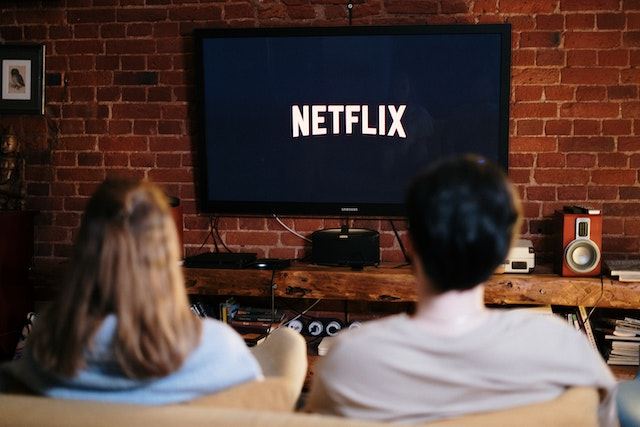
Do All TVs Work for Computer Monitors?
Technically, it's possible to link older TVs with older computer models, but the results are less beneficial than using the recommended monitor. The quality of the image transfer depends on the compatibility of the two systems concerning resolution and audio quality. The connecting cables also impact the quality of the images and sound. For example, it's easier to link an old computer with DVI or VGA outputs to an older TV set via the old VGA cable systems. However, it would be best if you prepared yourself for a less-than-satisfactory visual and audio experience. The old technology differs from the crisp and clear images of high-resolution technology.

Understanding the Differences in Inputs and Outputs in Outdated Technology
Old VGA and DVI outputs require the multi-pin plug end that connects the computer to a monitor. If you're attempting to link an older machine to an HDMI-connected TV, you'll need a multiport connector that features an adapter to receive the VGA output and a port for transferring the HDMI connection to the TV. Ensure that the adapter includes audio links, as VGA transmits only video, not audio. You'll need to make a second connection to hear the content transferred from the PC.
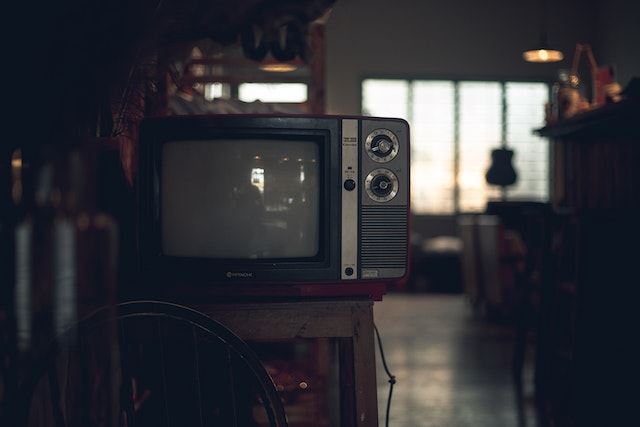
The Best Scenario
When the best possible quality is desired, using a late model HDTV, Smart TV, or better, with a modern PC or laptop, will give you better video and audio quality results. The setup is straightforward when both devices come equipped with HDMI inputs and outputs. Compatibility is another consideration. The two main areas of concern are the resolution limitations and the graphics card's capability or onboard computer graphics. For example, if your computer does not have an HDMI port, you may use a DisplayPort to HDMI adaptor or a USB-C to HDMI adaptor to compensate [1].
How to Use Your TV as a Computer Monitor
Now that you know the basics of connecting your PC or laptop to a TV, there are a few more details to consider. First, it's essential to ensure that the two devices are compatible before you go through the trouble of setting them up. We'll walk through the steps involved in finding the two essential pieces of information to compare. These are the resolutions of the computer and the TV and the capability of your computer's graphics card or system.
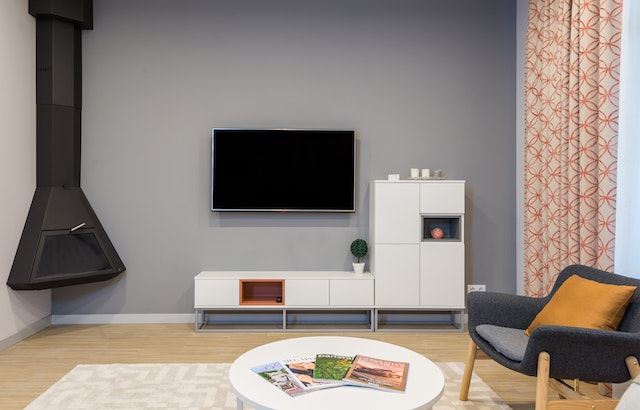
Determine Compatibility
Consult the manufacturer's manual of your TV to identify the resolution. Standard resolutions include 720p, 1080p, and 4k, but other non-standard solutions are found in some TVs. Find the brand and model number if you need help finding the manual that came with your TV. It's often displayed on a label at the back of the set. You can find most television user manuals online at the manufacturers' website.
The next step is to determine whether or not the integrated graphics or graphics card in your PC or laptop can output the resolution of your television. The best way to find information about your graphics card is to go to the Windows Start menu and click on the Settings option followed by System, then Display, and Display Adapter Properties for Display 1. Next, go to the List All Modes option in the popup window. You will see a range of resolutions supported by your graphics card or onboard graphics system. Click on the solution that most closely matches the value listed for your TV, and select it. This prepares your computer to make the most efficient transfer of information to the TV. After you've completed the process, and if the TV and Graphics resolutions are compatible, connect the two devices via the appropriate cables to set up the TV as a monitor.
Advantages of using your TV as a Computer Monitor
The benefits of using your TV as a computer monitor are apparent. You can share the images and audio with others in the room. The idea is more significant; you can enjoy watching movies, listening to music, or sharing other data accessed through your computer or the internet. You get the plusses of a larger monitor without the expense of buying a large-screen monitor, as the bigger units are pretty spendy. If your computer monitor goes out, you have a solid backup to save time and money. You can also use your TV to play computer-based video games and see more of the action.
Is There a Downside to using a TV for a Monitor?
There are a few downsides to using a Television as your computer monitor. If it's your sole monitor, you can run into eye and neck strain issues. Much of the computer work requires the user to sit a few feet away from the monitor. If your console and keyboard position is several feet away from the television, it will take an adjustment to become accustomed to working and viewing at different angles. For example, you may experience neck and back fatigue and muscle strain from either craning your neck or turning to view your progress as you go. An ideal situation is to set up a dual monitor system that allows you to switch back and forth from the TV to the more standard computer monitor for work and other activities.
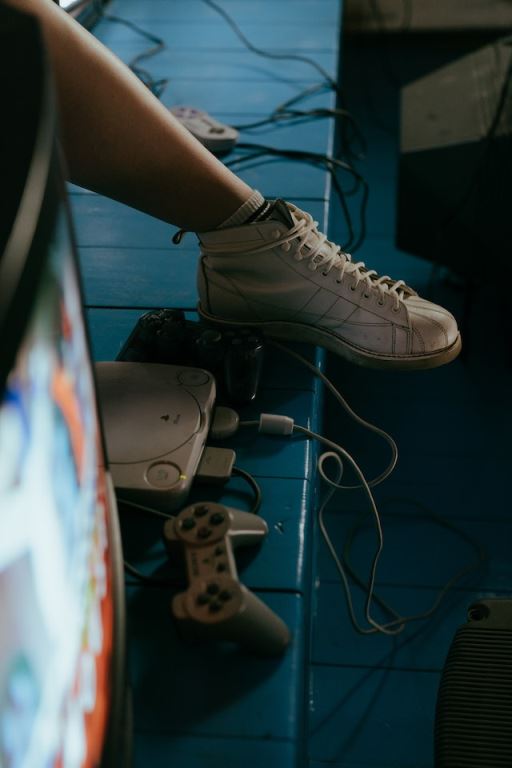
Lack of Image Quality and Responsiveness
Another disadvantage of using your TV as a computer monitor is a lag in the response time and refresh rate. The response is the amount of time that expires during the process of changing pixel color and how many times the display updates per second. Monitor manufacturers typically list the response rates as marketing information when selling monitors, but the information is only sometimes given to TVs.
Comparing the quality of monitors to TVs gives you an idea of the differences. The fastest monitor response times are the IPS panels. The next fastest is VA, then TN panels. Monitors do better at achieving speedier pixel response times than the typical TV set. The refresh rate for the average TV is between 60 Hz to 120 Hz (on the high end). Compare this with the speed of gaming monitors, which go as fast as 360 Hz, and it's not a contest.
While viewing videos may be a pleasurable experience, attempting to play video games can be a different story. Speed and image quality may be impacted and not as high as with a monitor designed to accommodate high-intensity gaming applications. So much depends on the compatibility of the graphics card resolution and the strength of the connection. For example, the Connectivity Ports for your computer may be incompatible with the ports offered on your television. Therefore, you may need to supply adaptors to compensate for the differences when you connect the devices.
Additionally, the lag between the two devices can cause games to become choppy due to input lag. The lower DPI can cause blurriness in any text that appears. The lack of clarity can affect some other parts of the images. These issues may become a problem, but these problems only occur for some. For example, most modern televisions and computers or laptops are set up for HDMI connections to add extra monitors.
Does the Benefit Outweigh the Downside?
Using your TV for a computer monitor is an excellent solution for sharing videos and other content from a computer or the internet with friends and family. You can also use the TV to help you read data in a larger format if your vision is low. If you're using modern equipment that's compatible, the larger screen is a money-saving option that can enhance your enjoyment of the content. In most cases, it's easy to connect your PC to a TV and reap the benefits. Some video games work well when using an HDTV.
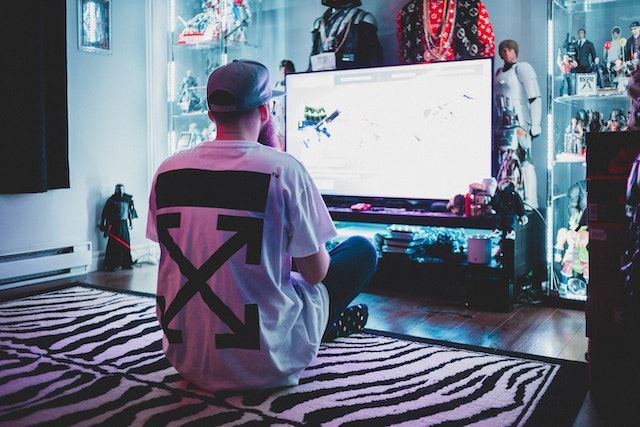
Conclusion
In case you were wondering, yes, you can use your TV as a computer monitor in most cases. Modern HDTVs with 4K technology, when paired with computers featuring compatible graphics cards, are a good match that can transform your living room TV into a multipurpose entertainment center. It's easy to make the connection between the two devices. Even if you're running with older equipment, it's possible to use adapters to help you transition from monitor to TV, but the results probably will be less satisfying. You may experience minor annoyances in speed and image quality, but you can still enjoy the enhanced picture size, complete with audio for most of your computer-based activities.